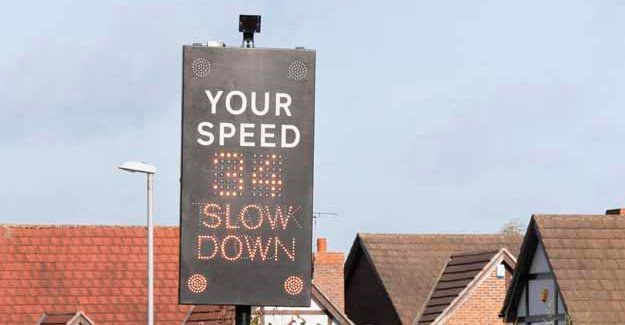Transport commission asks who's responsible for travel safety?
The Transport Safety Commission – a newly-formed body with 16 members drawn from the UK Parliament and from the air, rail and road safety professions and related sectors – is calling for evidence to guide its first inquiry under the banner “UK Travel Safety: Who is Responsible?”
It will be co-chaired by Professor Stpehen Glaister, director of the RAC Foundation, alongside Sir Peter Bottomly MP.
The Commission’s inquiry will examine the legal framework and institutional responsibilities for transport safety, looking at international good practice, to assess if lessons identified can be transferred from one mode to another.
Since most UK transport deaths and injuries occur on the road network, recommendations are expected to focus on the institutional arrangements for road safety. The Commission may consider implications for rail and air safety in its inquiry.
The Transport Safety Commission is seeking written evidence by 15 April 2014 on:
• Leadership and responsibility
Are there clear lines of responsibility for transport safety? How is responsibility structured across the different modes and for different system providers? Is national leadership in transport safety evident in all the modes?
• Objectives and targets
What transport safety results are currently being sought and which agencies are accountable on behalf of government for achieving them? What is the role and nature of aims and targets? Should the long-term Safe System goal and strategy be adopted for all transport modes? How can road safety goals be aligned with other transport objectives such as sustainability, public health and active travel measures to achieve co-benefits?
• Perceptions and culture
How do we gauge public perception of risk, public acceptability of effective measures; and public and corporate acceptance of liability? How can a greater culture of safety be achieved among employers, transport users and others?
• Funding
What are the current levels of funding for transport safety? Are annual funding mechanisms and resource allocation procedures appropriate? Is transport safety receiving adequate promotion and championing?
• Monitoring and evaluation
How should trends in safety be monitored and by whom? What is the case for an independent road safety or collision investigator?
• Research
What provision is made for keeping abreast of effective global practice? What provision is made for transport safety in R&D budgets?
Sir Peter Bottomley, MP, Co-chair of the Commission was the first roads minister to aim for a specific reduction in transport deaths and injury. He said: “To reduce the toll of death and injury on our roads, it is vital to have clear lines of responsibility and effective institutional arrangements. The Transport Safety Commission combines Parliamentarians and independent transport safety experts. This inquiry will raise the profile of transport safety at Westminster as we all start to think about the priorities for future government.”
Co-chair of the Commission, Professor Stephen Glaister says: “This is an opportunity for a long-overdue, independent review of how we manage transport safety. Whilst we can be proud of past improvements there remain many opportunities to avoid serious injuries and deaths. We should not presume that our safety laws and institutions cannot be improved and we must recognise the new difficulties stemming from the financial stringency faced by many public bodies. The Commission is keen to hear the evidence and to learn of the experience of best practice here and in other countries. I hope we will be able to make acceptable and affordable recommendations that will save lives.”
Guidelines on submitting written evidence are available on http://www.pacts.org.uk/transport-safety-commission/
The Commission will invite selected individuals and organisations to give oral evidence in the Houses of Parliament. Further details will be announced. The Commission intends to report by the end of the year.
For further information on the inquiry contact:
Stephen Glaister, Director RAC Foundation
020 7747 3485 or 07973 206 389 [email protected]
or David Davies, Executive Director, PACTS 020 7222 7732 [email protected]
Notes to editors:
In October 2008, the House of Commons Transport Select Committee called for the establishment of ‘an authoritative and independent road safety commission’. The Government has did not take up the recommendation. The Parliamentary Advisory took up the challenge and announced the formation of the Commission in March 2013.
At the time of announcing the Commission, Barry Sheerman MP said: “There are many aspects of transport safety that would benefit from public scrutiny, such as how to reduce crashes involving young drivers, what to do about level crossing safety and the safety procedures for the new aircraft which carry the equivalent of a school.”
David Davies, Executive Director of PACTS, said: “The Commission will be independent and cross-party, representing a broad spectrum of interests and expertise. The Commission will decide what to investigate and how best to go about it.”
Members of the Transport Safety Commission include co-chairs, Sir Peter Bottomley
MP and Professor Stephen Glaister, director of the RAC Foundation. The inquiry had been made possible by donations from the Safer Roads Foundation and the Rees Jeffrey’s Road Fund. PACTS provides the secretariat.


